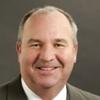How and When to Use Admissible Evidence in the Mediation Context: Guidance for New Lawyers
Recording of a 60-minute CLE video webinar
This CLE webinar presentation focuses on having, using, and relying on admissible evidence to be more effective during mediation and why doing so will create a distinctive edge in mediation and beyond.
Outline
- Mediation vs. settlement conferences
- What makes mediation different than other settlement contexts
- Many states limit the use of information exchanged during the mediation process: examples
- Most mediators require total confidentiality
- Phases of mediation: fact-finding and exchange followed by active negotiations
- Focus here is on the fact-finding and exchange of information stage
- What makes mediation different than other settlement contexts
- Case evaluation and discovery
- Pre-suit investigation and evaluation: plaintiff vs. defense
- Pleadings
- Discovery plan
- Interrogatories: strengths and shortcomings
- Document requests
- Subpoenas
- Party depositions: when is best?
- Non-party depositions
- Informal discovery
- Public records/FOIA
- Witness interviews and statements
- Investigators: uses and abuses
- Subrosa?
- Collecting and evaluating admissible evidence
- Records issues: authenticity vs. admissibility--why does it matter?
- Witnesses
- Personal knowledge requirements
- Hearsay problems
- Opinions: expert vs. non-expert
- Admissions: legal vs. factual
- Social media and video
- Preparing for mediation
- Choice of mediator is crucial to success
- Retired judge: pros and cons
- The brief
- Confidential or not?
- Legal vs. factual arguments
- Too much vs. too little
- In person or remote
- Prior settlement efforts
- Mediation
- Caucuses: the good, the bad, and the ugly
- Use of breakout rooms
- Who goes first and does it really matter?
- Playing your cards: Kenny Rogers
Benefits
The panel will review these and other issues:
- Why do attorneys fail to rely on admissible evidence in the negotiation setting?
- When should new attorneys start thinking about admissibility issues?
- What admissibility issues arise if evidence consists of social media and video?
Faculty

David J. Alfini
Partner
Hinshaw & Culbertson
Mr. Alfini provides results-oriented counsel and legal representation to assisted living and skilled nursing... | Read More
Mr. Alfini provides results-oriented counsel and legal representation to assisted living and skilled nursing facilities, continuing care retirement communities, nursing homes and independent living communities, as well as home health, home care, and hospice agencies. His goal is to help them manage risk and achieve their business objectives, both in and out of the courtroom. Mr. Alfini represents facilities and aging services companies nationwide, including in California, Illinois, and Indiana. Additionally, he has been granted admission pro hac vice in over 20 jurisdictions throughout the U.S. Mr. Alfini also partners with his clients to develop policies and procedures as well as employee training programs and advises on additional insured and contractual liability issues.
Close
Frederick J. Ufkes
Partner
Hinshaw & Culbertson
Mr. Ufkes is a trial attorney with more than 40 years of experience in complex litigation, medical devices,... | Read More
Mr. Ufkes is a trial attorney with more than 40 years of experience in complex litigation, medical devices, prescription pharmaceuticals, over-the-counter (OTC) products, environmental, toxic torts, mass torts, product liability defense, and construction litigation. He has national and regional counsel experience in product liability and mass torts and defends companies that manufacture a broad spectrum of products, including chemicals, chemical solvents, asbestos, pharmaceuticals, medical devices, electronics, computer software and hardware, heavy machinery, construction equipment, and consumer products. Before becoming a lawyer, Mr. Ufkes gained real-world experience in the building industry, giving him valuable insights when representing design professionals, owners, developers, and contractors in construction-related disputes. He also defends businesses nationwide regarding other business and commercial matters, as well as employment disputes. Mr. Ufkes handles a substantial number of matters involving compliance and litigation surrounding California's Proposition 65 (Safe Drinking Water and Toxic Enforcement Act). He counsels manufacturers and distributors of consumer and industrial products at the pre-marketing phase for compliance on a "go forward" basis. Mr. Ufkes also defends consumer class actions and state regulatory cases, seeking injunctive relief and civil penalties worth hundreds of millions of dollars. He litigates matters under the federal Comprehensive Environmental Response, Compensation, and Liability Act (CERCLA), Resource Conservation and Recovery Act (RCRA), Clean Air Act (CAA), and Clean Water Act (CWA) statutes for property owners, lessees, and manufacturing enterprises engaged in plastics manufacturing.
Close